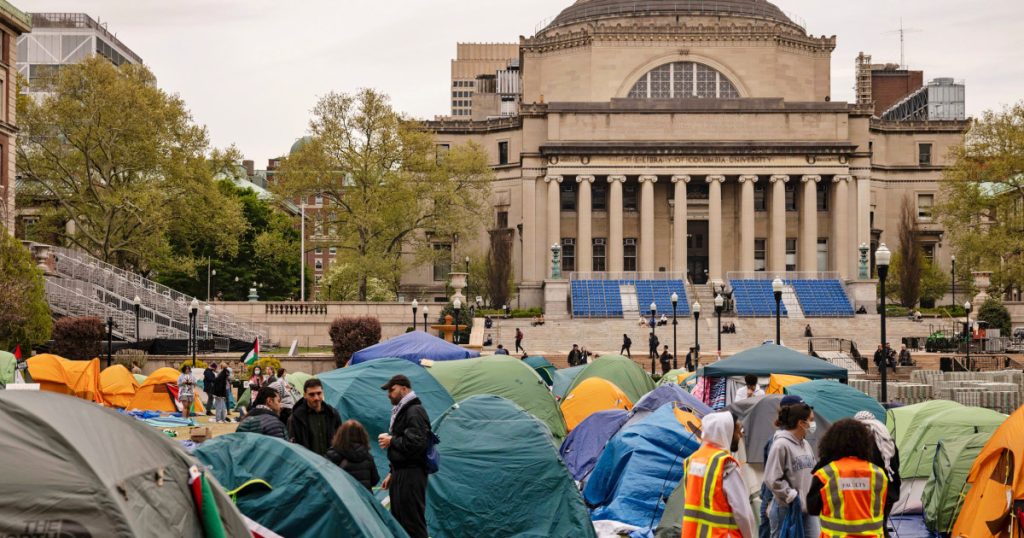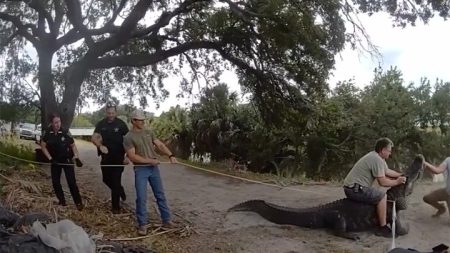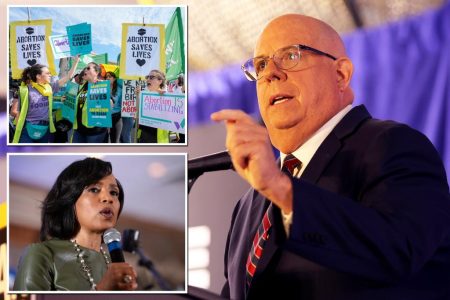Columbia University’s president, Minouche Shafik, announced that talks with student organizers had failed to reach an agreement and that the university would not divest from Israel, sparking protests on college campuses across the country. Shafik asked for those in encampment protests on campus to voluntarily disperse, citing concerns about the unwelcoming environment created for Jewish students and faculty, external actors contributing to a hostile environment, and the distraction for students and their families during the upcoming commencement ceremony on May 15. Columbia was the first elite institution targeted by protests in support of the Palestinian cause, with demands for divestment and an end to support for Israel amid the Israel-Hamas conflict, resulting in protests and arrests on campuses nationwide.
Despite Columbia University’s decision not to divest from Israel, Shafik offered an expedited timeline for a review of new proposals from students by the Advisory Committee for Socially Responsible Investing and the opportunity for students to access a list of the university’s direct investment holdings. Additionally, the university proposed to increase the frequency of updates to the list of holdings while also offering to make investments in health and education in Gaza, including support for early childhood development and displaced scholars. The protests at Columbia continue into their second week, but there have been small movements in negotiations between student organizers and university officials.
Protests spread quickly from Columbia University to campuses across the country, with students demanding divestment from investments in weapons manufacturing and support for Israel amid the ongoing conflict in the Gaza Strip, where over 34,000 people have been killed in the Israel-Hamas war. The demonstrations have led to mass arrests and crackdowns on student protesters at various colleges and universities. While the protests have not resulted in Columbia University divesting from Israel, the university has made some concessions in terms of offering an expedited review process for new proposals, increased transparency about its investment holdings, and investments in health and education initiatives in Gaza.
Shafik emphasized the importance of maintaining a balanced and inclusive environment on campus and expressed concerns about the impact of the protests on Jewish students and faculty. She highlighted the significance of the upcoming commencement ceremony and the desire to provide a positive and celebratory experience for thousands of students, families, and friends. Despite the decision not to divest from Israel, the university remains open to receiving and reviewing new proposals from students through the Advisory Committee for Socially Responsible Investing, indicating a willingness to engage in dialogue and consider alternative approaches to addressing student concerns.
The stalemate in negotiations between student organizers and Columbia University officials has led to continued protests on campus, with the encampment entering its second week. While the university has not agreed to divest from Israel, there have been discussions about potential investments in health and education in Gaza as a way to address some of the concerns raised by student protesters. The protests at Columbia and other campuses reflect a growing movement in support of the Palestinian cause and calls for accountability from institutions with financial ties to controversial issues such as the Israel-Hamas conflict. The ongoing dialogue and negotiations between university officials and student organizers highlight the importance of addressing these complex and sensitive issues in a thoughtful and inclusive manner.















